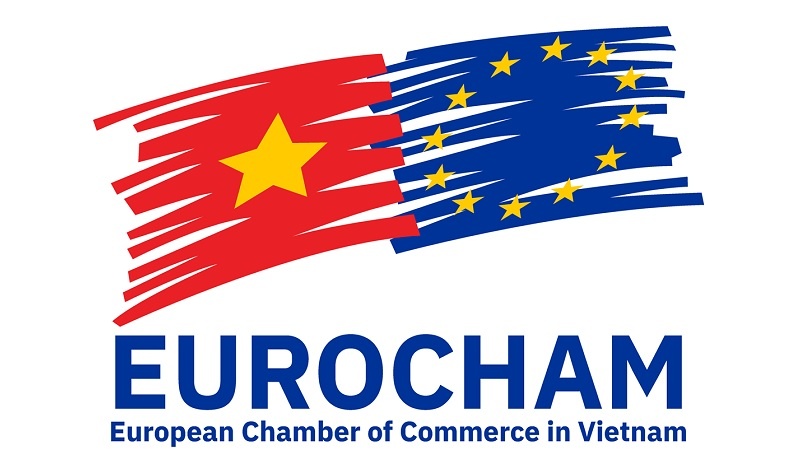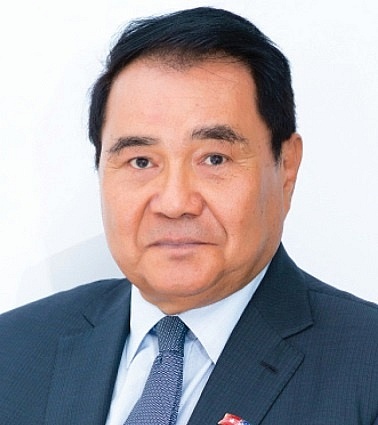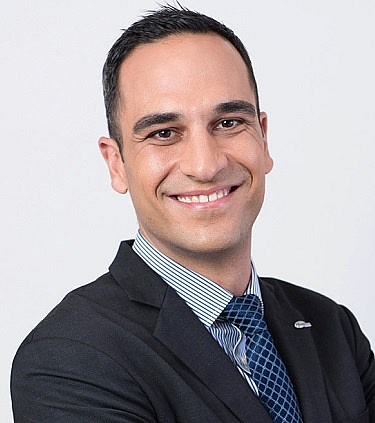Europe and Vietnam build bridges to further bilateral and investment ties
 |
| Europe and Vietnam build bridges to further bilateral and investment ties |
The European Chamber of Commerce in Vietnam (EuroCham) on November 25 unveiled the “Meet Europe: EU-Vietnam Partnership Post-COVID-19” Whitebook. Unlike the previous publications, the 2021 edition of the Whitebook came during unprecedented times when the country is attempting to emerge from a deadly pandemic in which companies have been closed and citizens have remained at home to stop the spread of the virus.
The publication is a collection of the international and local experience of EuroCham’s 1,200 members in all sectors and industries and from provinces right across Vietnam. Inside, the 18 sector committees share practical, evidence-based, and sector-specific suggestions on how to make their individual industries – and Vietnam’s business environment – more open, more competitive, and more attractive to foreign investment.
The dialogue focuses on three main areas: developing modern healthcare infrastructure and improving access to innovative medicines; resolving current trade issues, focusing in particular on food and beverages as well as agricultural products; and how sustainable economic development can be achieved through green growth, logistics, and digital solutions.
Information about how to foster even greater partnerships between European investors and different regions, especially investment opportunities in each of Vietnam’s provinces, was also included.
With the EU-Vietnam Free Trade Agreement (EVFTA) in force for nearly 18 months, prospects are wider than ever for greater trade and investment between the two. Hence, both overseas and domestic business communities – as well as governments – are being urged to work together to ensure that everybody does not just survive the pandemic, but thrive afterwards.
In light of this, specific concerns among EuroCham members remain the current work permit requirements for foreign workers, which still presents a barrier to bringing the brightest and best workers from around the world to Vietnam. Moreover, European investors continue to struggle to protect and enforce their intellectual property rights, with the pandemic compounding the current backlog of cases.
Meanwhile, several sector committees have raised the issue of counterfeit goods being sold online, urging the government to tackle the spread of fake goods and protect consumers. And with tourism being one of the hardest-hit industries during the pandemic, EuroCham members are encouraging the government to implement a recovery plan to support the sector.
“Our members are not just interested in growing trade and investment – essential though this is – but also in helping to modernise Vietnam’s legal framework, streamline administrative procedures, and improve the business environment, said EuroCham chairman Alain Cany. “Both domestic and international business communities benefit from a more liberal trade and investment climate; not to mention consumers who gain greater access to goods from around the world.”
According to EuroCham, the issues its members raised in the latest edition of the Whitebook are worlds apart from those of the first edition in 2008, when Vietnam had just joined the World Trade Organization. Since then, Vietnam has become more integrated into international markets and global value chains, not least through new-generation trade deals like the EVFTA.
However, Cany said, even though the challenges are different, the solutions remain the same – free, fair, and rules-based trade is the roadmap to recovery from the pandemic. “If the ideas contained in our Whitebook can be taken on board, we believe that it will help the government to go further and faster on its positive path of reform and help Vietnam to continue its unprecedented economic growth into the future.”
In response to the concerns, Vietnamese government agencies are working to solve the difficulties for European businesses. Nguyen Thi Hong, Governor of the State Bank of Vietnam, emphasised that the EU is one of Vietnam’s biggest partners in development cooperation, the fifth-biggest trading partner of Vietnam, and the sixth-biggest foreign investor in the country.
Hong added that the Vietnamese government will continue to create the most possible favourable conditions for EuroCham members to make investments in prioritised sectors like high-tech, IT, the supporting industry, smart agriculture, renewable energy, and environmental protection, among others. Hong also believed that the EU-Vietnam Investment Protection Agreement, once ratified, will deepen bilateral ties.
| Alain Cany-Chairman EuroCham
Vietnam is moving in the right direction. Further simplification of administrative procedures, conditional business sectors, logistics and infrastructure investment, and an acceleration of digitalisation and e-government procedures will help to attract new foreign investment. This, in turn, would help to speed up Vietnam’s economic growth in 2022 and unlock its full potential as a leading trade and investment destination in Asia. We hope our recommendations in our Whitebook will contribute to taking the right decisions. I sympathise with the government in this very difficult situation that we are facing, but I am very confident that the whole European business community in Vietnam, will support the country. | |
| Jean-Jacques Bouflet-Vice chairman of Advocacy EuroCham
The annual Whitebook collects the insights and recommendations of our sector committees, which cover a wide range of industries. In this important publication, our members share their suggestions with the Vietnamese authorities about how they could encourage more trade and foreign investment in their respective sectors. In doing so, we hope to share the international experience of our members to contribute to the success, development, and growth of Vietnam. Despite the difficulties of the pandemic, with the gradual return to normality and with signed free trade agreements, foreign trade and investment activities will continue to grow, helping companies and economies on both sides to rebound and recover after the pandemic. | |
| John Paul Pullicino-Chairman Pharma Group
The Whitebook launch was a valuable opportunity for the pharma industry to highlight the belief in Vietnam’s potential to generate significant social and economic value from the investment of world-leading pharma companies. For this to happen, the industry needs a predictable and sustainable environment. Recent directions from the prime minister are sending positive signals to the pharma industry. Pharma Group looks forward to contributing to the translation of these positive directions into implementable policies. We are eager to see concrete improvements in the business environment, especially to address barriers in administrative procedures, facilitate companies to bring medicines to market faster, and maintain supply. | |
| Tran Ngoc Anh-Representative Nutritional Foods Group
We have committed to improving the nutrition status of the Vietnamese people through introducing science-based nutritional solutions. In the new Whitebook, we recommend that the Ministry of Health updates the list of permitted food additives annually, and abolishes the pre-approval procedures for food advertisements. We also recommended that the Ministry of Environment and Natural Resources revises the draft decree implementing the Law on Environmental Protection to facilitate both environmental protection and economic growth. In all, this launch event has been a prestigious chance for European businesses to join forces with the government to build up Vietnam’s future. | |
| Tomaso Andreatta-Chairman Green Growth Sector Committee
The brave commitments of the Vietnamese government at COP26, to reach carbon neutrality by 2050 and renounce coal as a source of electricity well before then, can be achieved. Still, they require a long work of bringing the country to be fully modern, and starting cannot be postponed. European companies and institutions can help by providing capital, technology, expertise, and especially understanding how the different models work and bring results. Many companies investing in Vietnam respect its worldwide social and governance policies, and they cannot afford to stay long without fully guaranteed renewable energy. At the same time, consumers choose to buy a product based on its integrity. Vietnam is blessed with plenty of sun, wind, and water but it has to learn how to balance them. This will bring about a new industry and employment, without the need to ask for technology transfer from elsewhere. Natural gas has a temporary role in this, as it also produces CO2. |
What the stars mean:
★ Poor ★ ★ Promising ★★★ Good ★★★★ Very good ★★★★★ Exceptional
Related Contents
Latest News
More News
- Global partnerships key to Vietnam’s IFC development (December 26, 2025 | 16:18)
- Vingroup pulls out of bid to invest in North-South high-speed railway (December 26, 2025 | 11:42)
- Strengthening supply chains through trade promotions and customs reform (December 24, 2025 | 14:00)
- PM orders investment model for North–South high-speed rail (December 22, 2025 | 17:43)
- LS Eco Energy to invest in Vietnam rare earth sector (December 22, 2025 | 17:31)
- Government moves to establish International Financial Centre (December 21, 2025 | 21:00)
- Vietnam's IFC to target global investment flows (December 21, 2025 | 18:00)
- Two national hospitals expand capacity with new facilities (December 20, 2025 | 09:00)
- Ha Tinh breaks ground on major Vingroup industrial and energy projects (December 19, 2025 | 18:24)
- EVN launches major power infrastructure projects nationwide (December 19, 2025 | 18:17)






 Tag:
Tag:





















 Mobile Version
Mobile Version